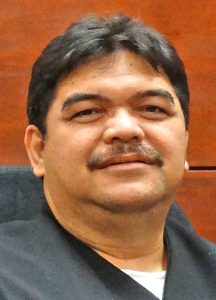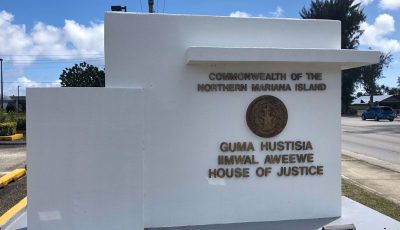Man serving 45-year prison term wants new lawyer

Camacho
A prisoner who is serving a 45-year prison term for sexual crimes wants the Superior Court to provide him with a court-appointed lawyer who will contest his suspended sentence from a negotiated plea agreement in his 1997 criminal case, which is the basis for his conviction sentence.
Anthony Rios, through temporary counsel Matthew J. Holley, said he is entitled to a court-appointed lawyer under Commonwealth law.
Holley said the court should appoint a lawyer for Rios because the issues and facts in the case are so complex to require a lawyer, making Rios unable to investigate and present his claims.
Holley said the 1997 case includes a plea to six different counts, containing a sentence of five years to serve without the possibility of parole, and five other counts that are to be both served consecutively and concurrently, with sentences of five to 10 years each.
Holley said the interpretation of the plea agreement involves sufficiently complex legal and factual basis for the court to appoint a lawyer on Rios’ behalf.
Rios is serving a 45-year sentence; he said he is unable to afford a lawyer. The DOC library, he said, has limited and often outdated resources and does not contain many court rules and provides no case law.
He claimed he is denied access to the internet to do research for his case.
He cited that the issues he needs to research and present are complex legal issues involving constitutional analysis, reduction in sentence and writ of habeas corpus.
Rios has made the same request to the U.S. District Court for the NMI.
Writ of habeas corpus refers to a court order to a person (prison warden or institution) holding someone in custody to deliver the imprisoned individual to the court.
Rios had also written the same complaint to the Superior Court.
Last January, after receiving the handwritten letter of Rios, Superior Court Associate Judge Joseph N. Camacho set a status conference and appointed the Office of the Public Defender on the sole issue of whether Rios may still be appointed counsel, considering that he already appealed before the CNMI Supreme Court.
Rios also asked for an appointment of an attorney and filed a notice of petition for a writ of habeas corpus.
According to court records, in 1997, Rios pleaded guilty to three counts of sexual abuse of a child, two counts of oral copulation, and one count of rape. He was sentenced to five years imprisonment.
After his release from prison in 2003, Rios re-offended and was sentenced to five years imprisonment.
In 2012, the defendant re-offended again and was charged with two counts of sexual assault in the second degree, two counts of assault and battery, and two counts of disturbing the peace. Based upon those charges, the government sought to revoke his probation in both the 1997 and 2003 cases.
Before revoking the probation, a trial judge presiding over the revocation hearing—different from the one who had presided over the 1997 and 2003 cases—denied his request for a presentence investigation report.
In 2012, Camacho sentenced Rios to the maximum of 45 years in prison for the 1997 and 2003 cases.
Rios appealed, but in 2015 the CNMI Supreme Court affirmed his conviction and the 45-year prison term that Camacho imposed on him. (Ferdie De La Torre)



























